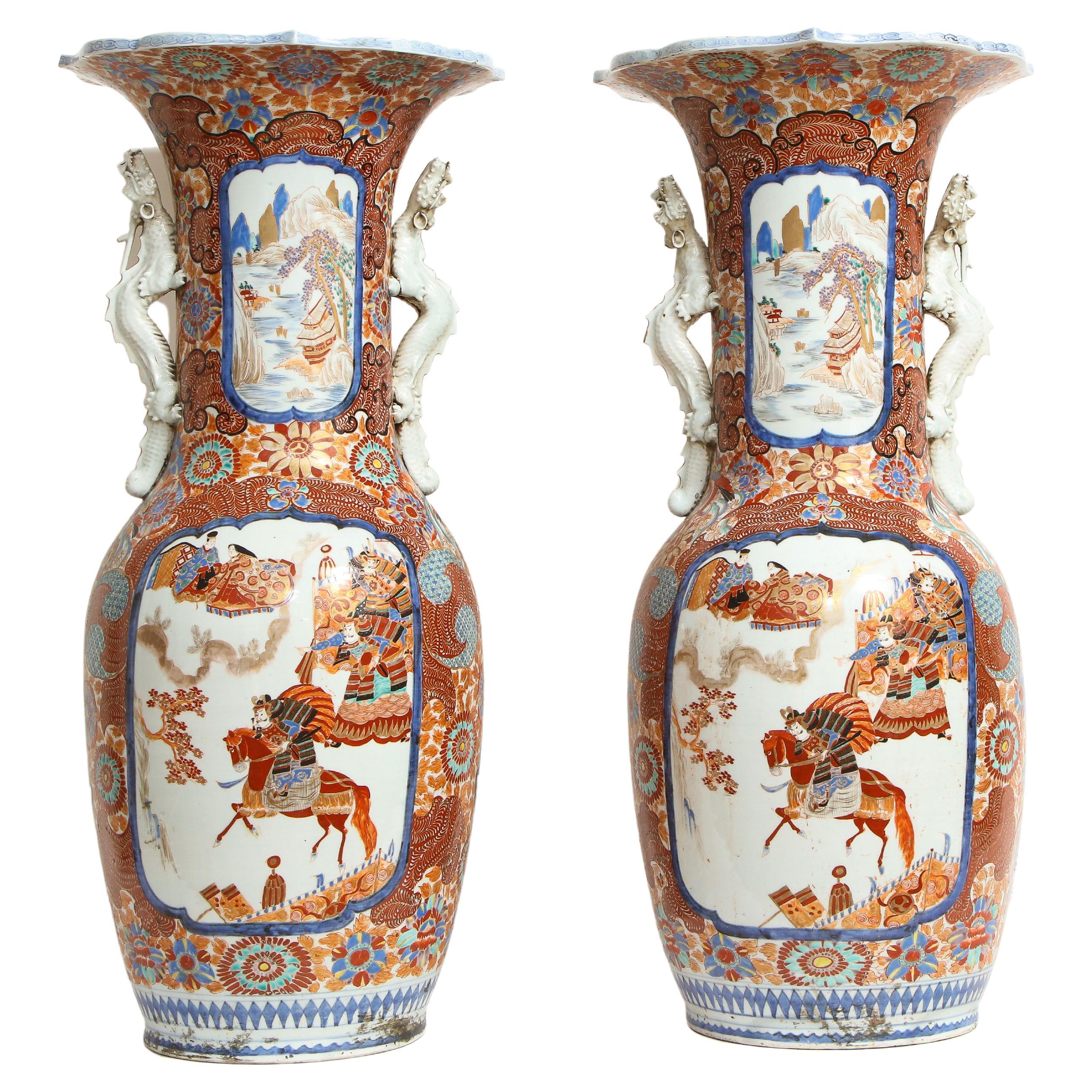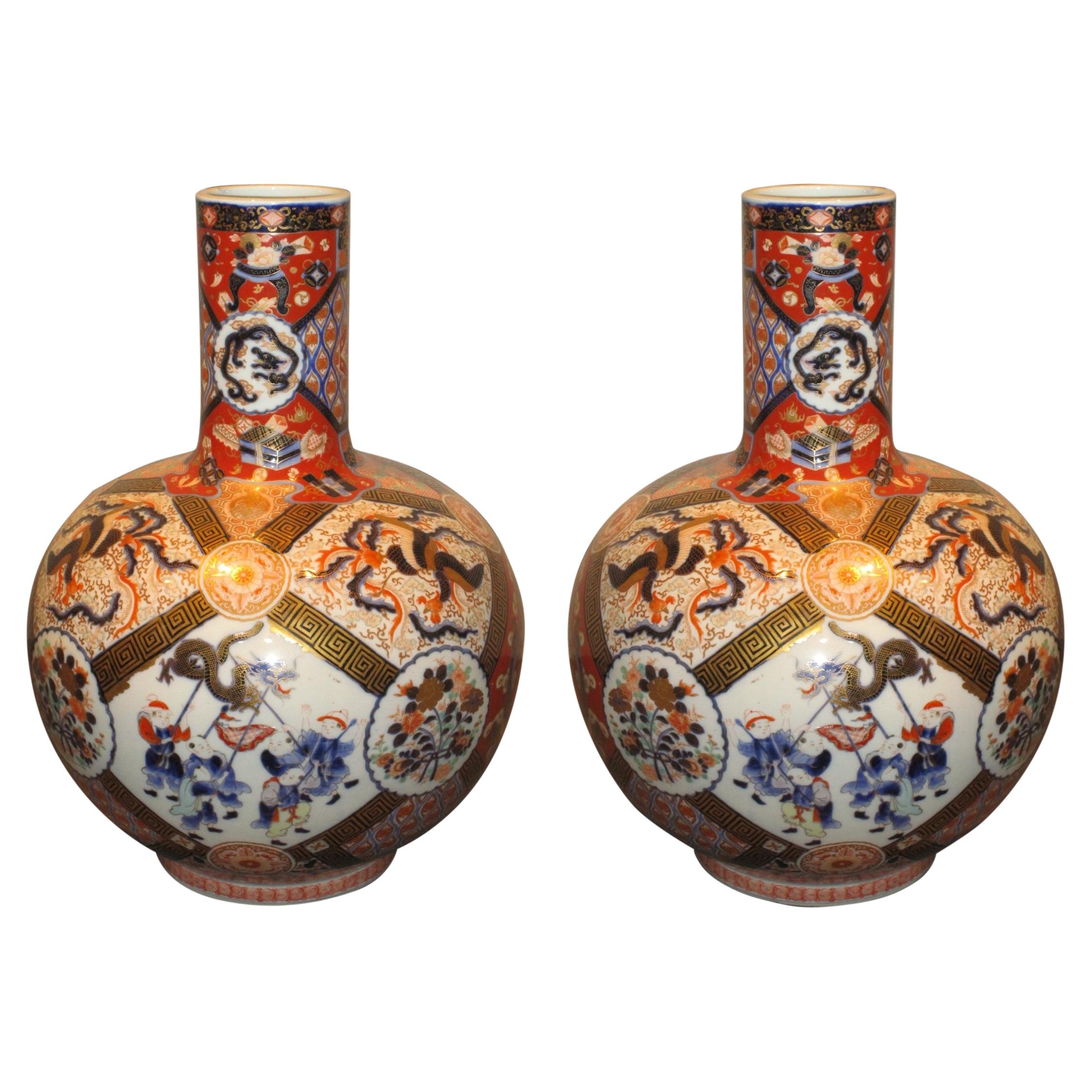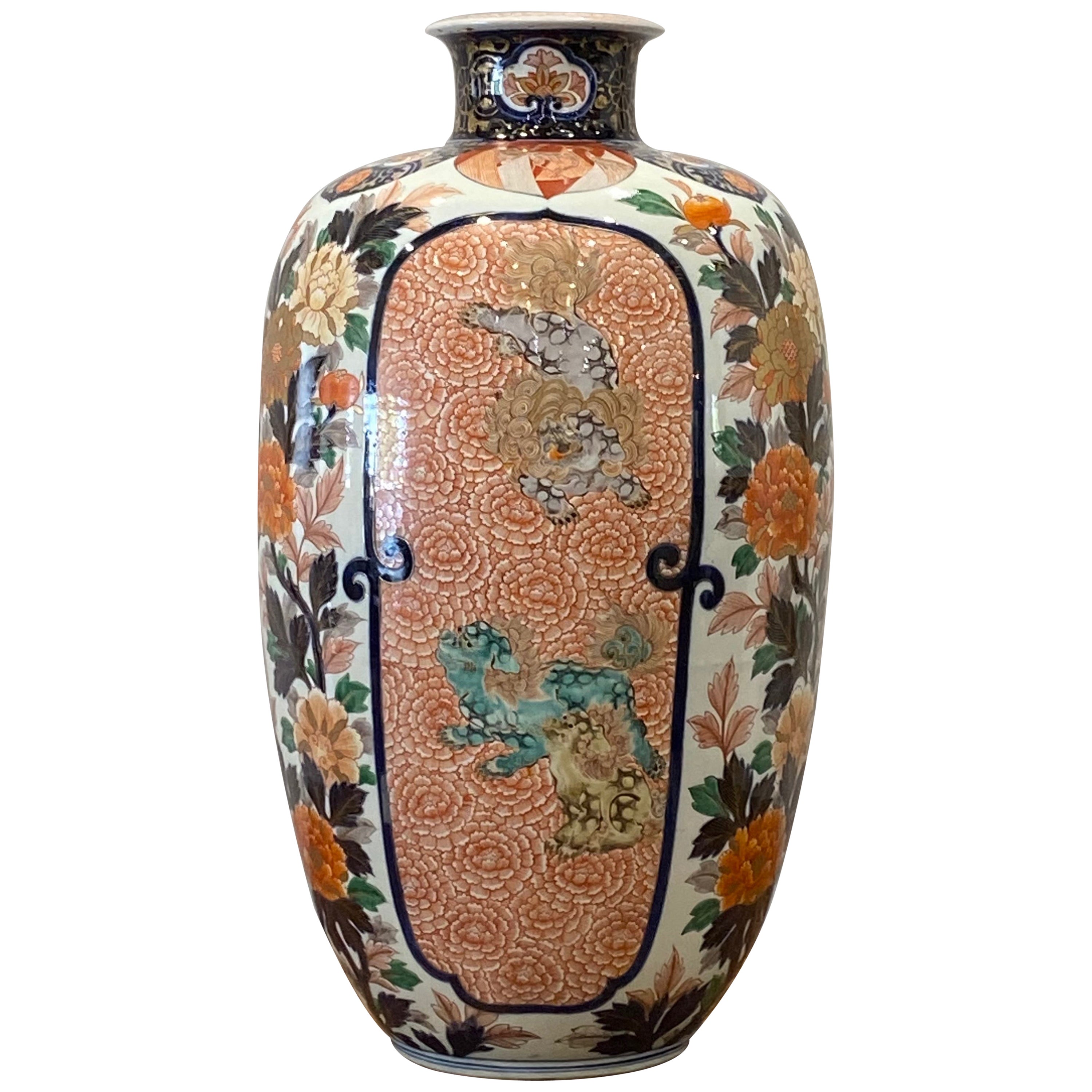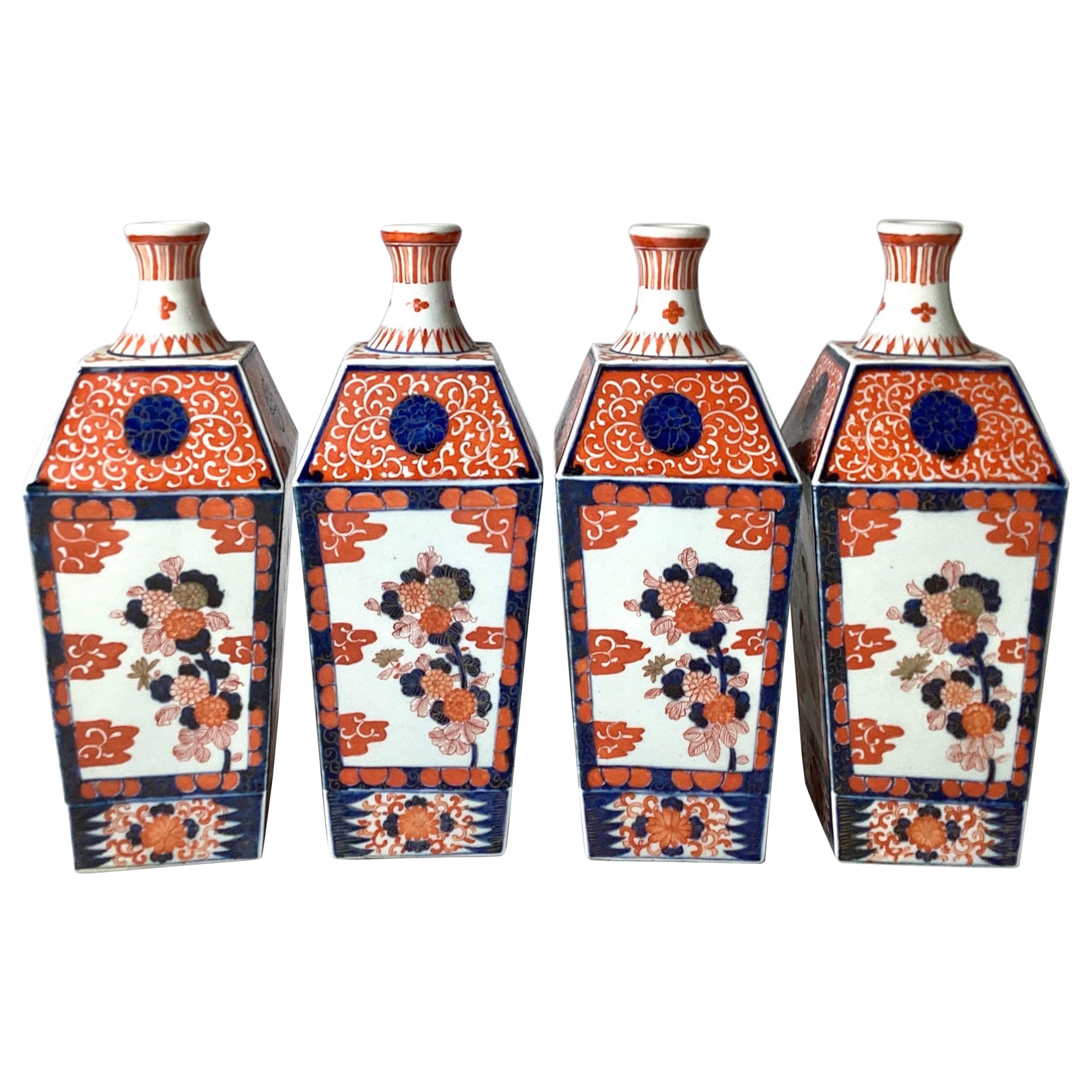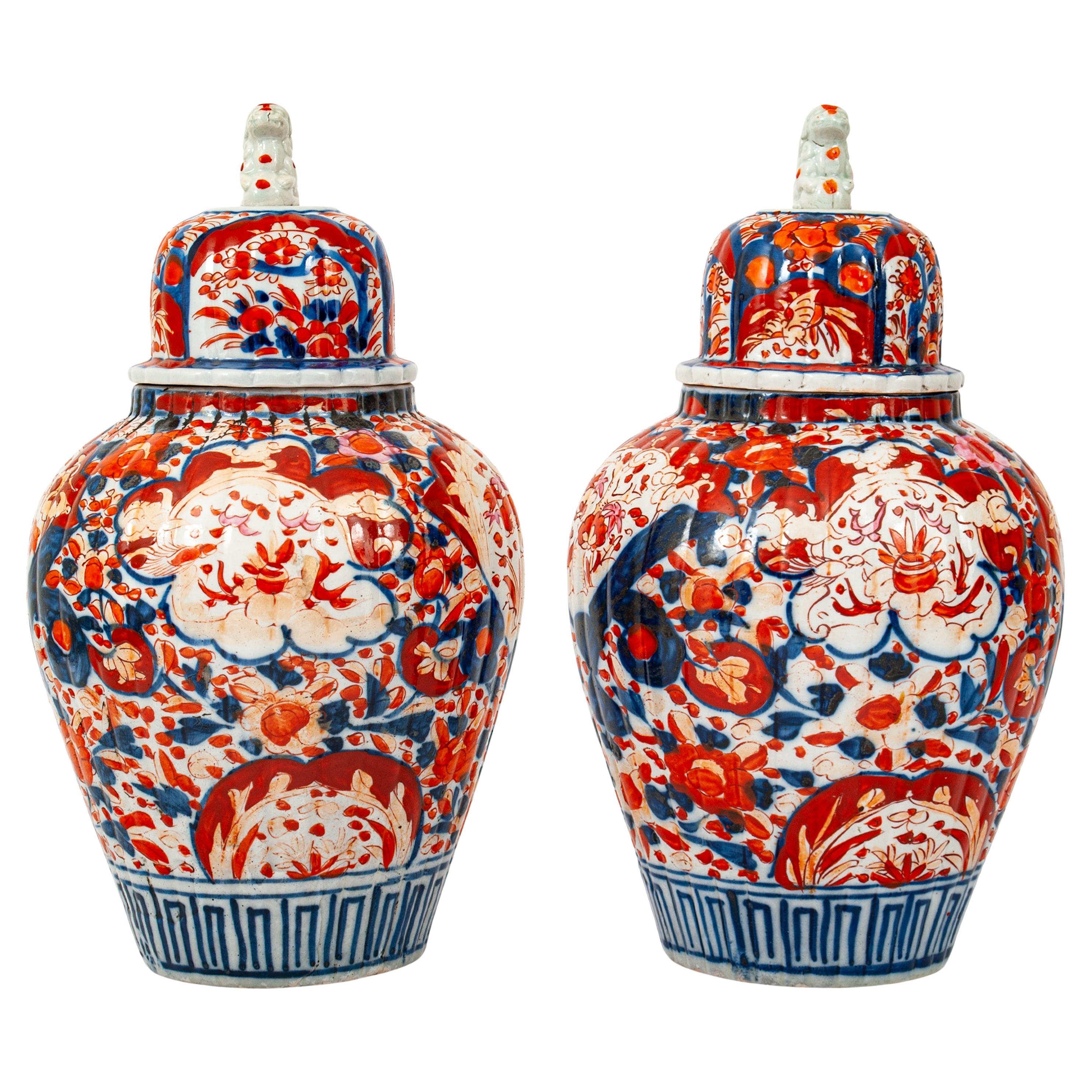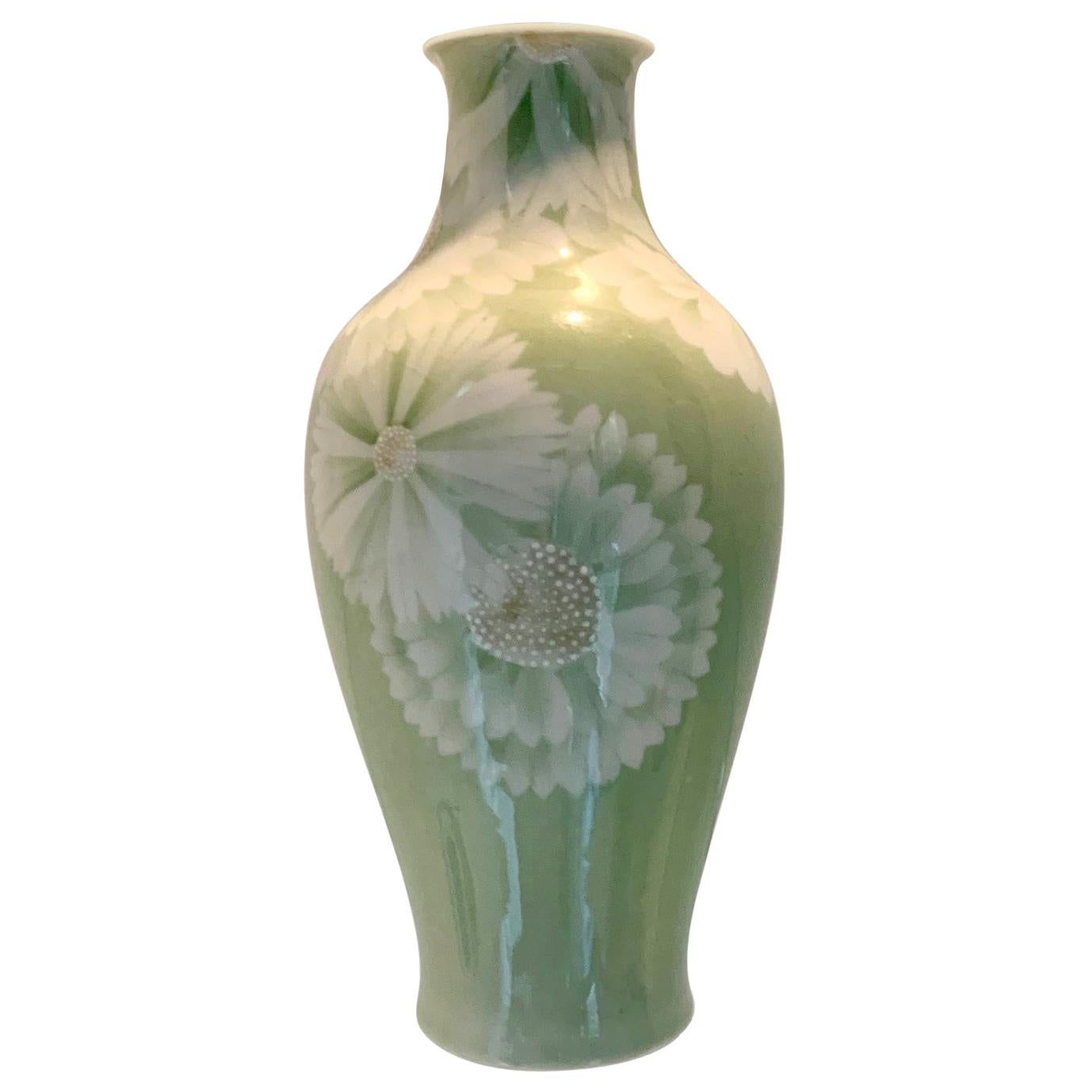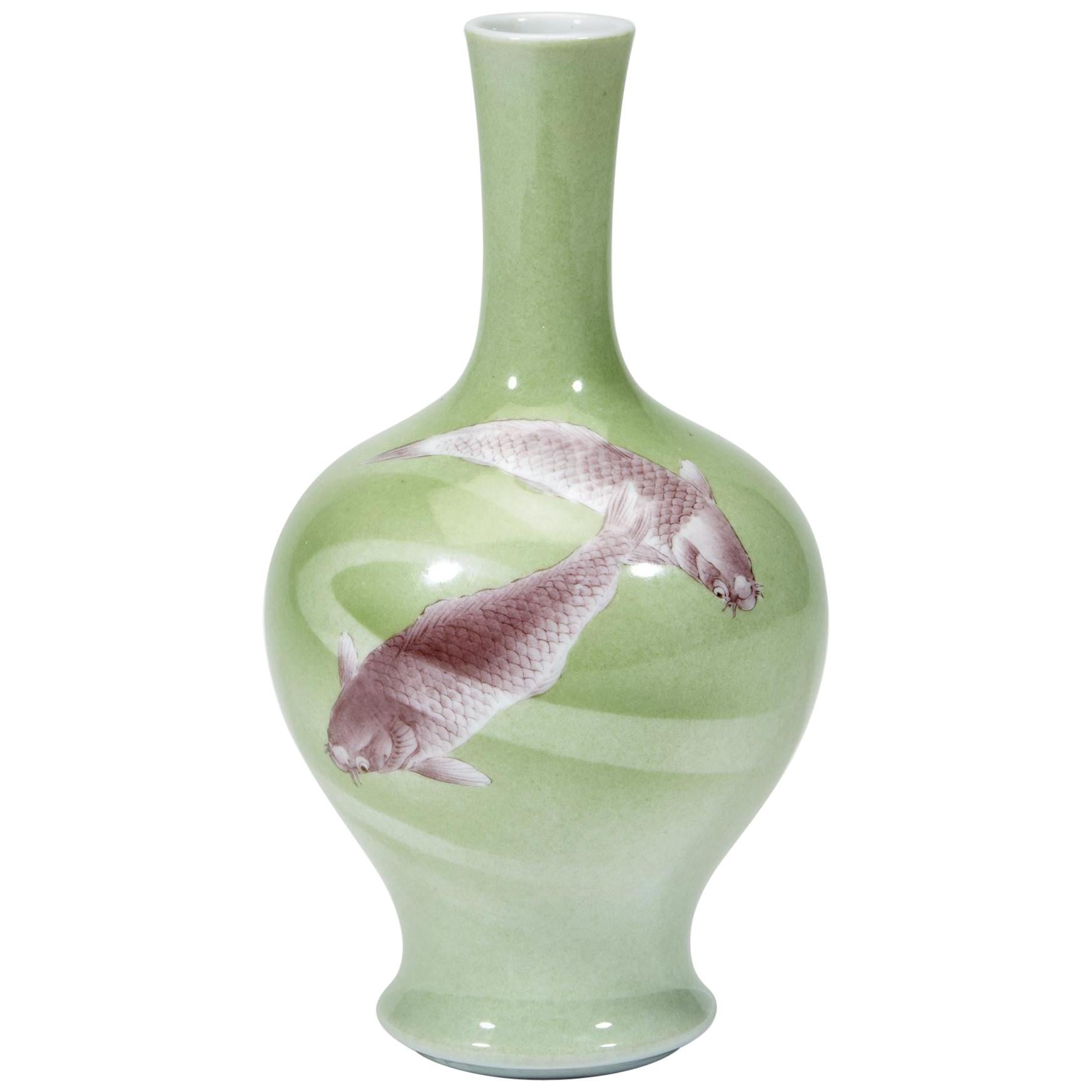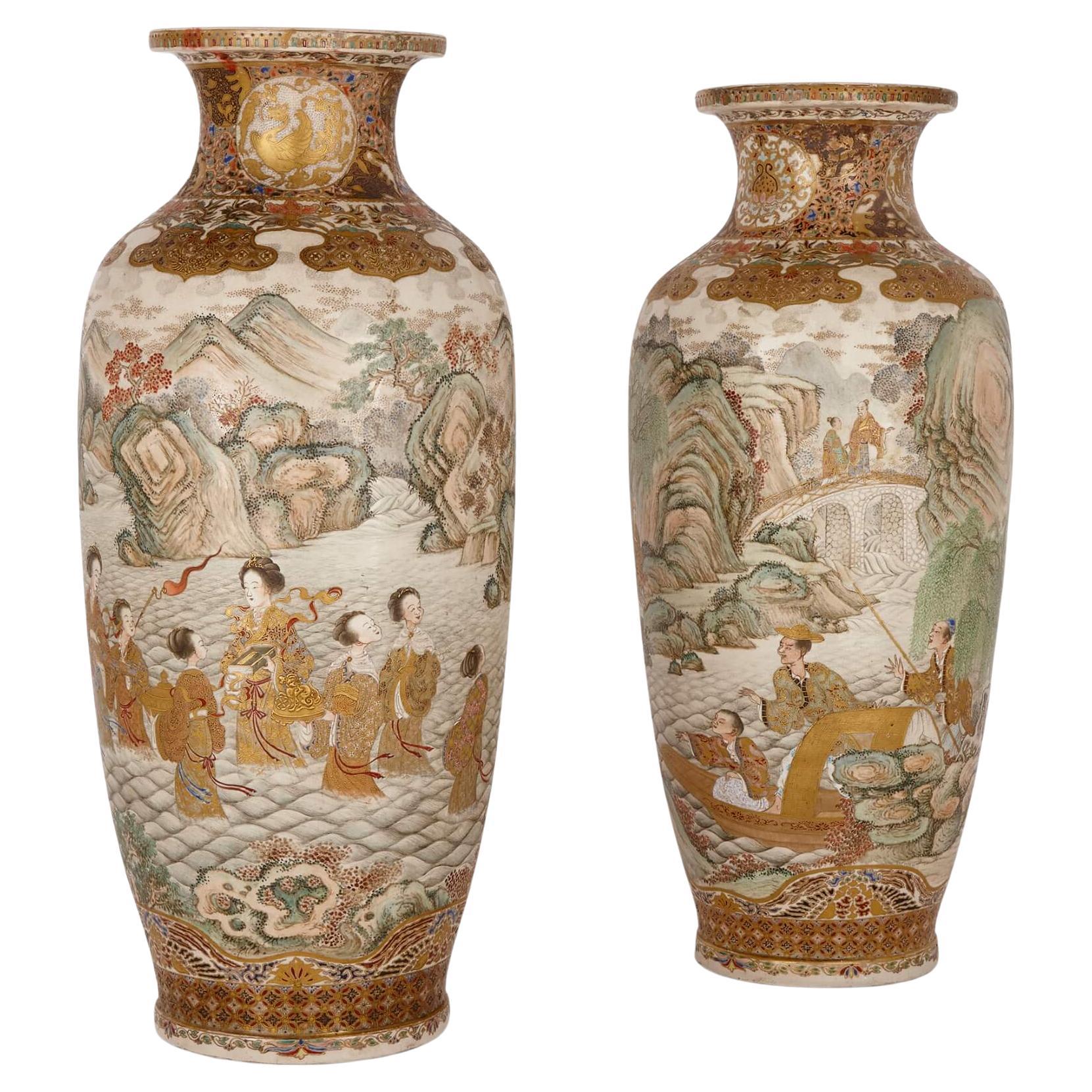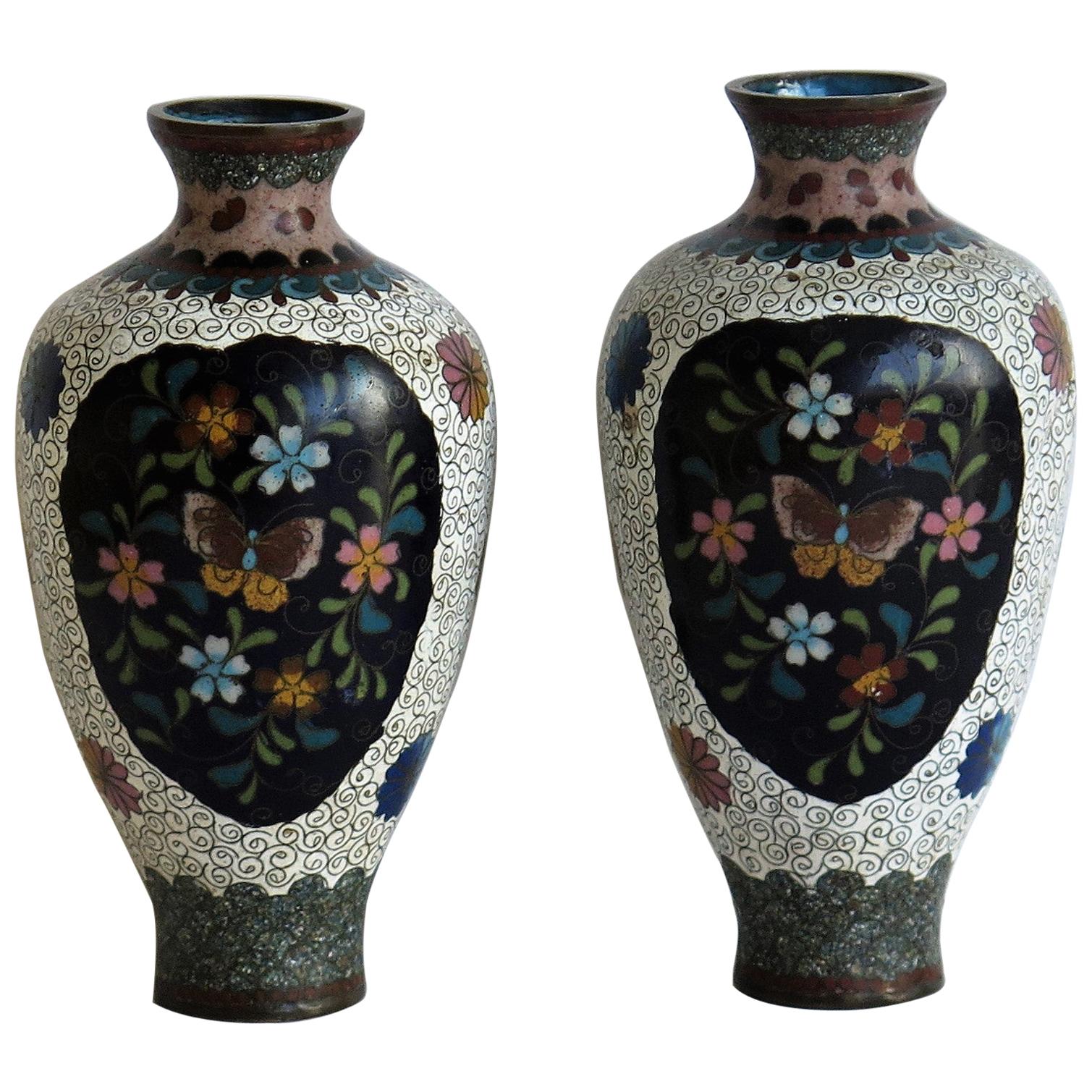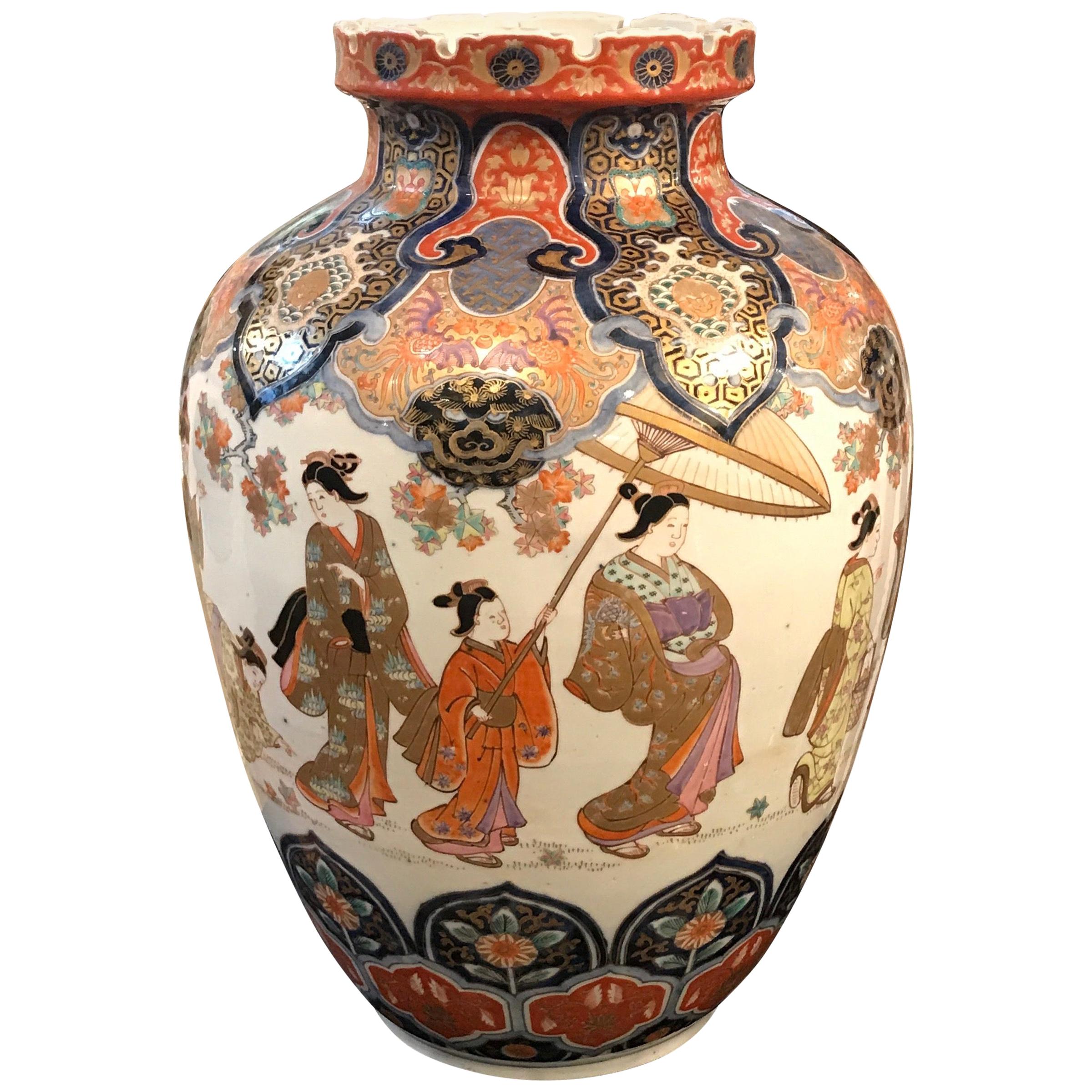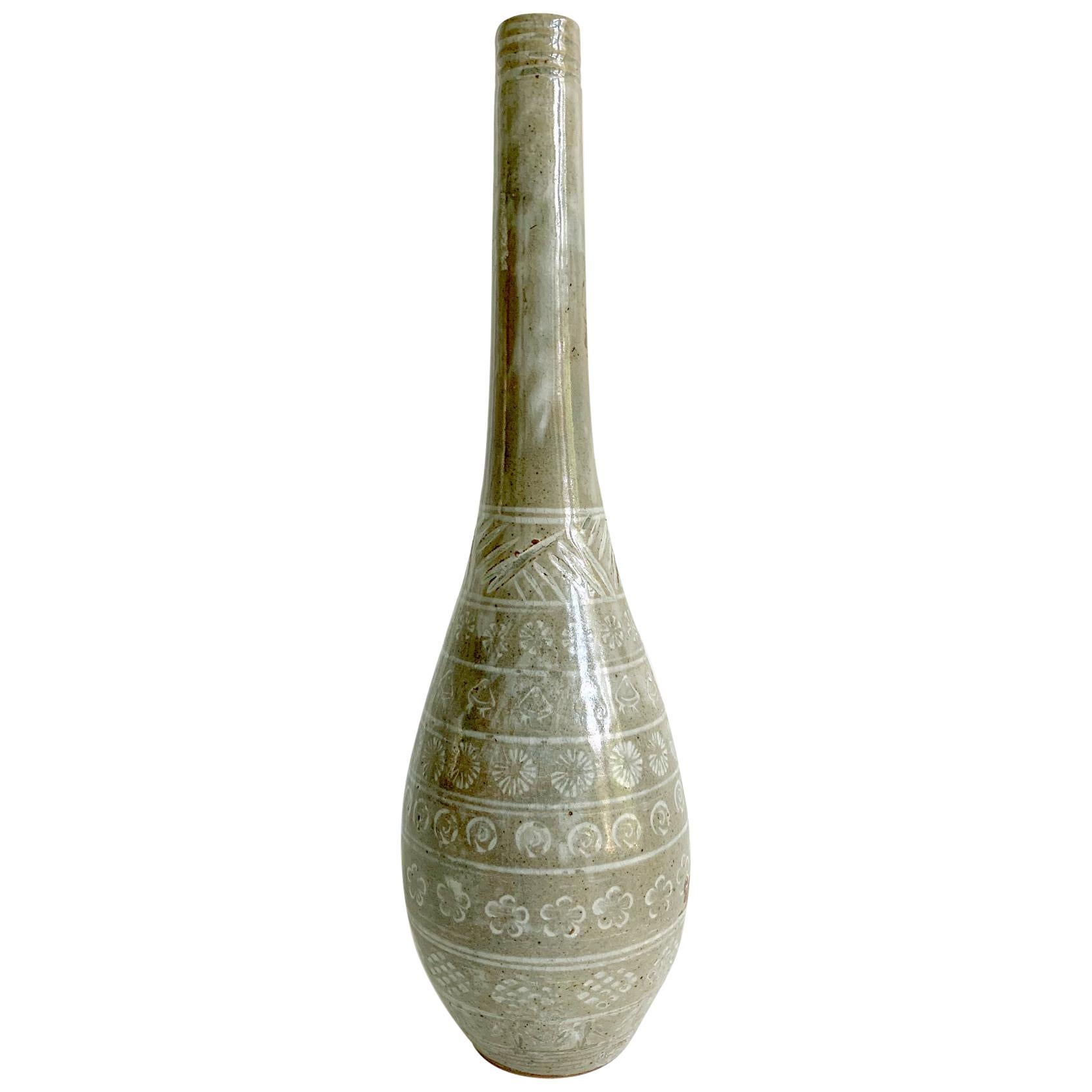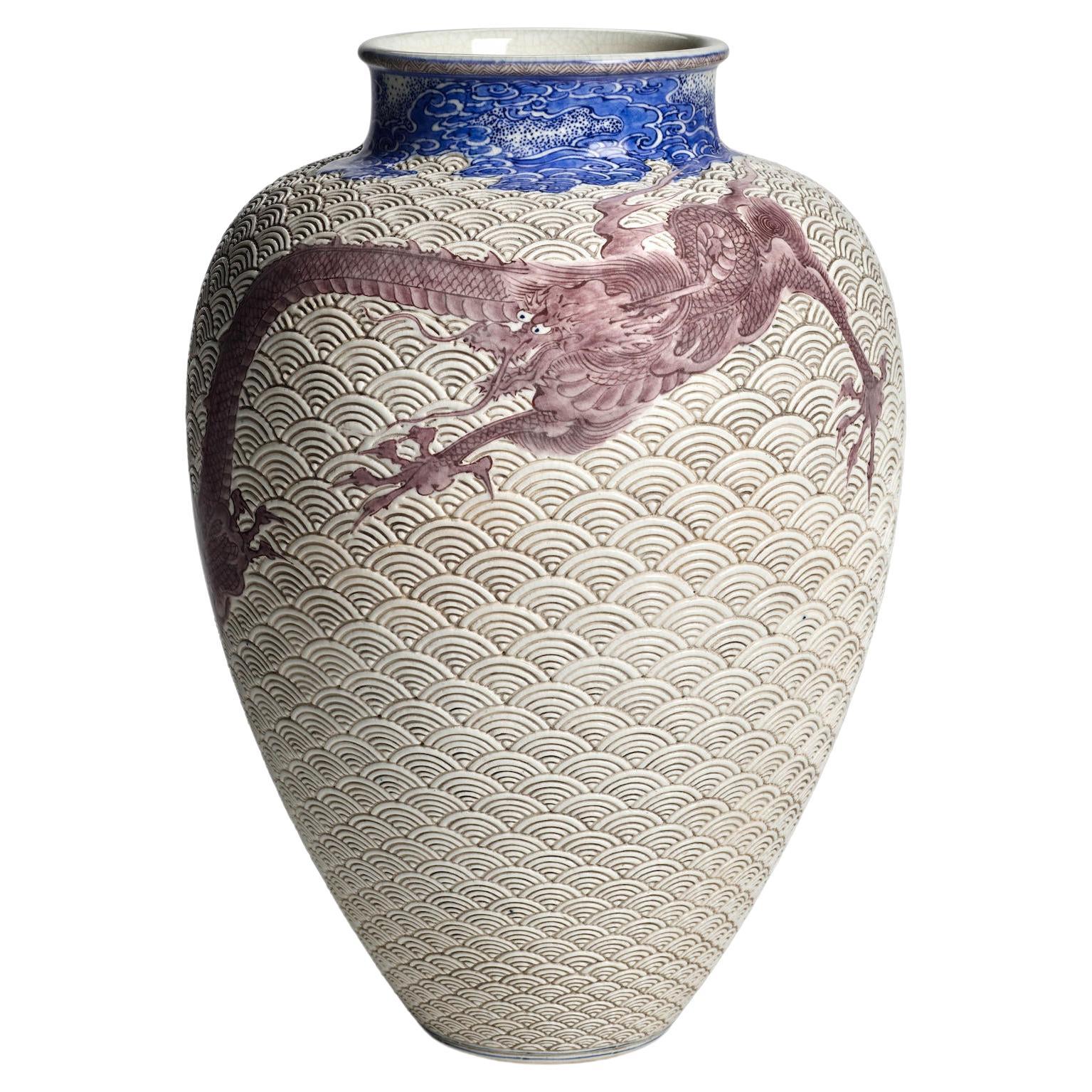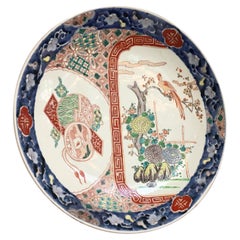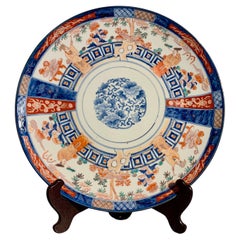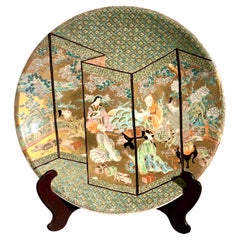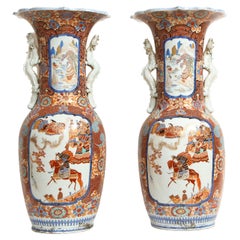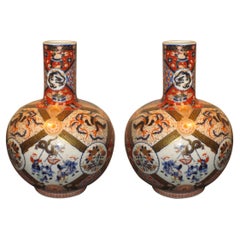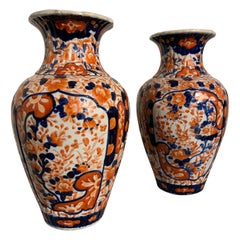
Pair of Japanese Imari Ribbed Vases, Meiji Period, circa 1900
View Similar Items
Want more images or videos?
Request additional images or videos from the seller
1 of 15
Pair of Japanese Imari Ribbed Vases, Meiji Period, circa 1900
About the Item
- Dimensions:Height: 12 in (30.48 cm)Diameter: 7 in (17.78 cm)
- Sold As:Set of 2
- Style:Meiji (Of the Period)
- Materials and Techniques:Porcelain,Glazed
- Place of Origin:
- Period:
- Date of Manufacture:circa 1900
- Condition:Wear consistent with age and use. No chips cracks or repairs noted. One vase with some crazing to the glaze at the mouth and foot, seemingly from the firing (please see photos).
- Seller Location:Austin, TX
- Reference Number:1stDibs: LU894717918652
About the Seller
5.0
Platinum Seller
These expertly vetted sellers are 1stDibs' most experienced sellers and are rated highest by our customers.
Established in 2001
1stDibs seller since 2010
305 sales on 1stDibs
Typical response time: 1 hour
More From This SellerView All
- Japanese Imari Charger, Meiji Period, Late 19th CenturyLocated in Austin, TXA nicely decorated Japanese Meiji Period Imari charger, late 19th century, Japan. The porcelain charger featuring a design of a hoho bird, or phoenix, per...Category
Antique Late 19th Century Japanese Meiji Platters and Serveware
MaterialsEnamel
- Large Japanese Imari Charger, Edo/Meiji Period, mid 19th century, JapanLocated in Austin, TXA large 18.25" diameter Japanese Imari porcelain charger, Edo to Meiji Period, mid 19th century, Japan. The large charger of near flattened form and decorated in the typical Imari palette of underglaze blue with red, orange and green overglaze enamels and gilt highlights. The design is centered on a roundel with a dense design of scrolling peony blossoms and leaves in underglaze blue. Two large pictorial reserves of Shinto priests...Category
Antique Mid-19th Century Japanese Meiji Ceramics
MaterialsPorcelain
- Large Japanese Imari Gilt Charger, the Six Immortal Poets, Meiji Period, JapanLocated in Austin, TXA bold and unusual large 18.5" diameter Japanese gilt ground Imari porcelain charger featuring the Rokkasen, the Six Immortal Poets, Meiji Period, circa 1900, Japan. The impressive charger features a striking image of the Six Immortal Poets, known as the Rakkasen, seated in fenced pavilion within a lush garden setting and surrounded by numerous books and scrolls. Gnarled pine trees and and branches laden with plum blossoms tower overhead, while chrysanthemum and massive peonies bloom among rocky outcrops. The scene is unexpectedly and masterfully executed as if on a byobu, a traditional Japanese six panel folding screen. The screen is opened in a dramatic manner, slightly akimbo, almost jumping off the dish, reminiscent of the "screens within screens" genre that developed during the Edo Period. Despite the folds and changes in perspective, the painting remains harmonious and lyrical, with the fully gilt ground adding a sense of warmth and sumptuousness. The screen is bordered with a geometric bands in the shippo pattern. The shippo pattern features interlocking circles, and symbolizes the Seven Treasures. The shippo pattern on a larger scale serves at the background fo the rest of the charger. The backside of the charger decorated with two bands with underglaze blue designs. The reserve decorated with scattered stylized blossoms in iron red and gilt. The Rakkasen, known in English as the Six Immortal Poets, are a group of 9th century Heian Period waka poets whose works were included and praised by name in an anthology of poetry collected by the courtier, poet, and writer, Ki no Tsurayuki. Waka poems are a strict five line...Category
Antique Early 1900s Japanese Meiji Ceramics
MaterialsPorcelain
- Large Japanese Imari Fluted Charger, Edo/Meiji Period, Mid 19th Century, JapanLocated in Austin, TXA large and impressive Japanese Imari porcelain fluted charger with scalloped rim, signed Kaji(chu?), Edo to Meiji Period, mid 19th century, Japan. The magnificent Japanese Imari ch...Category
Antique Mid-19th Century Japanese Meiji Ceramics
MaterialsPorcelain
- Large Japanese Imari Charger 16", Edo / Meiji Period, mid 19th century, JapanLocated in Austin, TXA large and charming Japanese imari charger with Chinese boys, Edo to Meiji Period, mid 19th century, Japan. The large porcelain charger measuring 16" in diameter features high, slo...Category
Antique 1860s Japanese Meiji Ceramics
MaterialsPorcelain
- Japanese Imari Ten Sided Dish, Edo / Meiji Period, mid 19th century, JapanLocated in Austin, TXAn unusual Japanese Imari porcelain decagonal (ten sided) dish with underglaze blue and overglaze enamels, Edo to Meiji Period, mid 19th century, Japan. The ten sided dish features ...Category
Antique 1860s Japanese Meiji Ceramics
MaterialsEnamel
You May Also Like
- Pair of Japanese Meiji Period Imari Vases with Dragon HandlesLocated in New York, NYA Monumental pair of Japanese Meiji Period Imari vases with Dragon handles, Japanese Porcelain Studio Marks on Underside. Each is beautifully ...Category
Antique 1880s Japanese Meiji Ceramics
MaterialsPorcelain
$26,000 Sale Price / set20% Off - Pair of Japanese Late Meiji Period Fukagawa Porcelain Vases, circa 1900Located in Takarazuka, JPSuperb pair of Japanese large Meiji period Fukagawa signed porcelain vases (circa 1900). Intricately hand-painted in cobalt blue underglaze with polychrome and gold overglaze on a st...Category
Antique Early 1900s Japanese Meiji Vases
MaterialsGold
- Large Japanese Meiji Period Imari Vase, 19th CenturyLocated in San Francisco, CAA large and impressive fine quality 19th century Imari vase, with hand painted classical floral motif and inset panels painting of playful Foo Dogs. Japan, Meiji period, late 19th c...Category
Antique Late 19th Century Japanese Meiji Ceramics
MaterialsPorcelain
- Rare Set of 4 Meiji Period Imari Bottle Form VasesLocated in Lambertville, NJA rare set of four hand painted Japanese porcelain Imari bottle form vases. The vases of square tapering form with classic Imari iron red and cobalt blue ...Category
Antique 1880s Japanese Meiji Ceramics
MaterialsPorcelain
- Pair Large Antique Japanese Meiji Period Porcelain Imari Lidded Jars Urns, 1880Located in Portland, ORA good pair of large antique Japanese Meiji period porcelain lidded jars, circa 1880. The jars having ribbed dome shaped lids topped with lion-dog (Komainu) finials, the baluster shaped jars also of corresponding ribbed form. The lids and jars are skillfully hand-decorated in the Imari palette with blue & iron red floral decoration over a white body, on one side are a pair of floral cartouches on another side is a fan shaped cartouche. Condition is very good indeed, no damage or restoration, a very handsome pair of 19th century Japanese Imari lidded jars...Category
Antique 1880s Japanese Meiji Ceramics
MaterialsPorcelain
$1,320 Sale Price / set20% Off - Japanese Porcelain Vase Meiji Period Makuzu KozanBy Makuzu KozanLocated in Atlanta, GAA finely decorated and glazed Japanese porcelain vase by Makuzu Kozan (1842-1916) circa 1900s Meiji Period. The vase is of a classic bottle form with baluster body and short neck. It was decorated with underglaze white magnolia blossom on a pleasant celadon background. The stamens of the flower were artistically rendered in a low relief, giving the design a realistic appeal with the dimension. Miyagawa Kozan...Category
Early 20th Century Japanese Meiji Ceramics
MaterialsPorcelain
